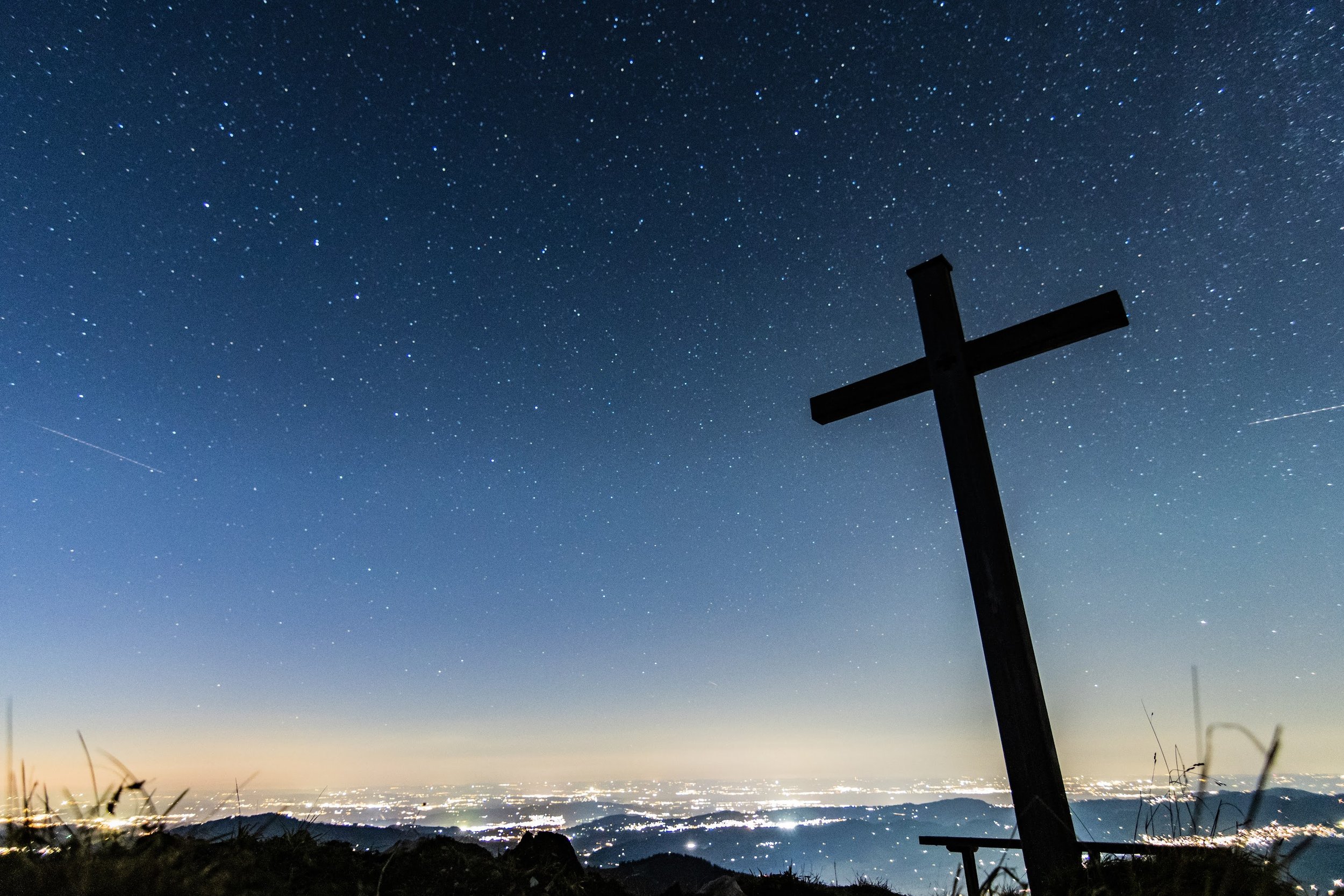Strength in Weakness
Augustine of Hippo wrote:
"In affliction, then, we do not know what it is right to pray for. Because affliction is difficult, troublesome and against the grain for us, weak as we are, we do what every human would do. We pray that it may be taken away from us. However, if he does not take it away, we must not imagine that he has forgotten us. In this way, power shines forth more perfectly in weakness."
Courage, Wisdom, and Love
Lately I have been reading through the book - “Common Prayer - A Liturgy for Ordinary Radicals”. One of the devotional thoughts of the day included this insight about courage, wisdom, and love -
“Ammon Hennacy, a Catholic Worker, said, "Love without courage and wisdom is sentimentality, as with the ordinary church member. Courage without love and wisdom is foolhardiness, as with the ordinary soldier. Wisdom without love and courage is cowardice, as with the ordinary intellectual."
Guide us, Lord, to walk: in courage, wisdom, and love.
Lord, you give life to our understanding of love, courage, and wisdom. Today there are so many paths we might follow. Help us discern the direction to set our own faces so that we might meet you at the cross in our willingness to deny ourselves for your kingdom, and at the empty tomb in our living the resurrection life. Amen.”
In caregiving, the need for this intersection of courage, wisdom, and love is especially acute. May this simple prayer serve as a daily, even hourly way to center your focus on Jesus - the One who is the perfection of these - demonstrated for us in a life empowered by the Holy Spirit.
A Song of Perspective
Along with Psalm 27, Psalm 28 is one of those honest and real Davidic heart-songs I’ve found myself returning to in many a dark and desperate moment. It begins with a cry for help that is trying hard to maintain faith and confidence in God’s goodness:
To you, Lord, I call;
you are my Rock,
do not turn a deaf ear to me.
For if you remain silent,
I will be like those who go down to the pit.
Hear my cry for mercy
as I call to you for help,
as I lift up my hands
toward your Most Holy Place.
Time and again, in caregiving, this was my posture in prayer - crying for help while desperately trying to hold onto faith in the Lord’s goodness. When you don’t “feel” like He is near, it is easy to feel panicked and afraid. It’s easy to feel like you’re exposed to the elements of this world without protection or reassurance.
While in Scotland last year, we visited “Old Man Storr” on the Isle of Skye. From a distance, it’s a peculiar looking rock that seems to simply poke out of the side of a hill, almost like a “thumbs up”.
Even when you get closer, hiking up the hillside itself, it’s easy to lose sight as it seems to blend in with the tooth-like crags of the mountain top. It’s not until you are right beside it that you realize the magnitude of this rock - It’s enormous. Your sense of awe immediately emerges when your perspective changes.
In David’s Psalm, it’s like there is this moment when Yahweh no longer appears as some odd and impersonal “thumbs up” in the distance, but a looming and massive Rock instead. David’s perspective has shifted. He’s no longer riddled with anxiety, concerned solely about his welfare and the due-justice for all the evil doers and imposers of negativity in his sphere. He is now only seeing the Rock.
Praise be to the Lord,
for he has heard my cry for mercy.
The Lord is my strength and my shield;
my heart trusts in him, and he helps me.\
My heart leaps for joy,
and with my song I praise him.The Lord is the strength of his people,
a fortress of salvation for his anointed one.
Save your people and bless your inheritance;
be their shepherd and carry them forever.
What changed in David’s psyche? Was there perhaps a miraculous event that split this Psalm into a before and after hymn? Or is it possible that his spirit was simply elevated in the midst of his crying out, feebly holding onto faith, so that God revealed His true magnitude and His uncompromising nearness? I suspect it was the latter.
What’s categorically different between the Old Man Storr in this frail illustration and the God of Scripture, is that there was no physical (or metaphysical) hike required of David to obtain this new perspective. He simply needed to cry out. God is no less near when we feel distant, than He is when we feel awestruck. He’s always near. He is “Immanuel, God with us”.
My prayer for you, caregiver friend, is that in your desperate and beleaguered moments you would continue to cry out, holding on to what few strands of faith you may feel remain. And that in so doing, you’ll sense and see the nearness of the Lord and experience the rush of confidence, strength, and hope that David experienced in his dark hour. He is near.
The Lord is the strength of his people,
a fortress of salvation for his anointed one.
May the hills lie low
May the hills lie low,
May the sloughs fill up,
In thy way.
May all evil sleep,
May all good awake,
In thy way.
We traveled recently to Scotland, and while experiencing some beautiful scenery, also encountered some wonderful traditional Scottish blessings.
I share these blessings in the hope they can be a resource and a daily encouragement for you in your caregiving:
May the blessing of light be on you,
light without and light within.
May the blessed sunlight shine on you
like a great peat fire,
so that stranger and friend may come
and warm himself at it.
And may light shine out of the two eyes of you,
like a candle set in the window of a house,
bidding the wanderer come in out of the storm…
And finally, a Celtic blessing from the first millennium, which we hope you can embrace as a daily prayer for focus and strength:
You are the peace of all things calm
You are the place to hide from harm
You are the light that shines in dark
You are the heart's eternal spark
You are the door that's open wide
You are the guest who waits inside
You are the stranger at the door
You are the calling of the poor
You are my Lord and with me still
You are my love, keep me from ill
You are the light, the truth, the way
You are my Saviour this very day.
Some food for thought…
“There are only four kinds of people in the world.
Those who have been caregivers,
those who are currently caregivers,
those who will be caregivers,
and those who will need caregivers”
- Rosalynn Carter
If you are a caregiver, you are already closely associated with two of those four basic groups. Your being a caregiver will also deepen your understanding and equip you to be a resource to the other groups as they enter into and out of these caregiving seasons of life.
Last Shall Be First
“The first shall be last and the last shall be first…”
This scene at Badlands National Park reminded me of this verse. It seemed so out of place, this one lonely bison in the middle of the Badlands plains. Where was the rest of its herd? Was it a loner or was it abandoned? It reminded me of what is often felt by both caregivers and the cared for. Disability, functional loss, or degenerative disease, and the sacrifices often required of caregivers can leave one feeling abandoned, alone, and… “last”.
I wanted to share some beautiful thoughts and reminders that came to my inbox this week from Mary Tutterow, author of "The Heart of the Caregiver":
Who are you? Take a moment to consider how you would answer that question. What influences helped shape that identity?Now consider, how would you answer that question if your ability to do the things that make you you were taken away from you? Who would you be then?
Perhaps your husband has forgotten what he did for a living or even how to take out the trash. Maybe your child has to attend "special" education and even there is struggling to perform. Perhaps your sister, debilitated by pain and cancer therapies has become angry, withdrawn and rude. Because they can't meet our expectations of who they are supposed to be, does their life have any less meaning or value? Do they deserve our frustration and impatience?
Our daughter, Mary Addison, was born with a severe seizure disorder. She is mentally and physically challenged. She struggled through school. College was not an option. She’s unemployable. She is not able to live independently. She can’t read the Bible nor audibly profess her faith. She’ll never marry or have children. She can't conform to the expectations, patterns and philosophies of this world.
Like so many people who can no longer or never could conform (the elderly, the chronically ill, the mentally ill, the poor and vulnerable, the feeble and weak), Mary Addison is judged, rejected, pitied and relegated to the “fringes” of society. She has been put in programs and classrooms where she is “managed” and “handled” by only trained staff.
Yet these are the very people God says will inherit the earth.
God tells Paul, “My power is made perfect in weakness.” Scripture tells us the first will be last and the last, first. God uses the weak and foolish to shame the strong and wise. In the Body of Christ, the weakest parts of the body are indispensable! Yet our families, communities – and yes, even our churches – do not treat these people as the most important, essential members.
Repeatedly in scripture, God chooses the least likely so that He can reveal what HE can do through any one of us – giving each one of our lives purpose, meaning and value – regardless of our credential and abilities.
How has caring for another required you to grow and change? What have you learned about yourself? About what it means to be human? About God? About love, patience, perseverance?
In a Besieged City
From Psalm 31:
“Blessed be the LORD,
for He has wondrously shown His steadfast love to me
when I was in a besieged city.
“I had said in my alarm,
‘I am cut off from Your sight.’
But You heard the voice of my pleas for mercy when I cried to You for help.
Love the LORD, all you his saints!
The LORD preserves the faithful
but abundantly repays the one
who acts in pride.
Be strong, and let your heart take courage, all you who wait for the LORD!”
Gazing down from the window of my hotel room in downtown Atlanta, the late afternoon sun reflecting from the mirrored windows of the hotel created an effect like jail cell bars on the block of bland government era buildings below. The cars on the rooftop parking lot below appeared like forgotten prisoners in some urban dystopia. Of course, I took a picture (above). I believe I had recently read this Psalm so the picture of a “besieged city” came to mind.
Sometimes in caregiving we feel “besieged”, and cut off from help or reinforcements. We often feel forgotten or overlooked. But those sentiments often pale in comparison to the siege felt by sufferers of dementia. With dementia, there’s not only a loss of independence, cognition, and faculty, but a very real sense often that the world is closing in on you. It often leads to high levels of panic and anxiety.
As I write this, another holiday is approaching and it reminds me of how holidays can even intensify these feelings of isolation, forgotten-ness, and being “besieged”, for both the cared-for and the caregiver. And this is especially the case with holidays that have traditionally been marked by large family or community gatherings, fun (and noisy) celebrations, and late afternoon and evening events (think 4th of July picnics, fireworks, festivals with live music). When we were caring for Nola with her dementia, these holidays were hard because we had to find inventive ways to celebrate and re-imagine the specialness of the day, while simultaneously avoiding all the usual social interactions and outings that had always marked that day!
If you are feeling under siege this holiday, let me humbly offer a few suggestions to help you reclaim some joy and even a sense of freedom:
Just as the Psalm exhorts us, cry out to the Lord for help, He hears us, and “preserves the faithful”. Don’t allow yourself to be overrun with anxiety, but “Be strong, and let your heart take courage”… wait for the Lord. I know that can sound almost pithy, but we so often fail to let our first instinct be extending our soul God-wards. I routinely have to remind myself to let my first instinct be reaching for Christ. I say “let”, because I believe our spirit is already trying to do just that - we just let our emotions and our self-defeating thought patterns convince us to do otherwise.
Think simple, and outside the box. How can you reimagine a celebration this time around that helps you avoid the discouragement and possible trauma of trying to force things the way they have been before. Alz.org has some wonderful pointers on how to approach holidays with someone who suffers from dementia. (The article may focus on Alzheimer’s Disease, but there is so much there that applies to any caregiving scenario).
Look for unexpected moments of humor and joy, and involve your cared-for loved one in the preparations. People with diminished cognitive and functional capacity still yearn to feel purpose and to be productive. Sometimes involving them in the simplest of preparation tasks can not only keep them focused on something, but can give them a sense of purpose and belonging, and even cause for laughter and joy.
What are some ways you have learned to approach and reframe holidays differently in your caregiving journey? We’d love to hear ideas and share those abroad.
My last photo was taken in St Louis just about a year ago. It’s part of a monument celebrating emancipation and highlighting this country’s struggle to eradicate slavery. For me, it’s also a promise and a reminder that no matter what our circumstance, there is ultimate liberty in Jesus. It’s a spiritual paradox that we can be in the most confining of circumstances, and yet experience emancipation of our spirit in His presence. As the psalm says, “But You heard the voice of my pleas for mercy when I cried to You for help.” Being “heard” and being “seen” by Him unlocks our mental and spiritual shackles and opens us to being filled with a new and abundant filling of His Spirit.
Whatever your anxiety or frustration this holiday, we are praying that as you cry out to Him first you encounter Him in a new way and you receive fresh inspiration and creative impulse to experience your holiday moment with your loved one in a truly new and transformative way.

“I lift up my eyes to the hills.
From where does my help come?
My help comes from the LORD,
who made heaven and earth.
He will not let your foot be moved;
he who keeps you will not slumber.
Behold, he who keeps Israel
will neither slumber nor sleep.”
(Psalm 121:1-4, ESV)
We were fortunate to make a bucket list trip for our 25th wedding anniversary to Switzerland. Of course, the Matterhorn was on our site list. The day we arrived it was completely clouded over and had been for about a week. It was doubtful we would get a glimpse of this emblematic piece of rock. As we were riding the furnicular up the adjacent mountain, all of a sudden the clouds cleared and the mighty Matterhorn made a dramatic appearance. There was a collective gasping of breath as everyone suddenly jammed against the windows on one side of the train, I’m sure causing some alarm for the conductor!
I guess in a way the moment reminded me of Psalm 121. Not because the Matterhorn is a source of help to anyone really, except for the booming tourist industry of Zermatt and surrounding areas. But sometimes in life, and especially in caregiving, we feel like God is lost from sight behind the clouds of our experience. Suddenly, there are moments when his glorious face appears, not unlike the Matterhorn, causing us to gasp in awe, gratitude, and worshipful devotion. These moments may seem fleeting and few, but they remind us that God is surely present. Even though our sight is obstructed by the clouds, He is no less there than He is when His brilliance breaks through for us to see. He is our Keeper and neither slumber nor sleeps.
I remember when this Psalm really hit home for me in 2021. Dad-in-law (Doug) had passed away less than 2 weeks prior in our home, after a season of caregiving. Mom-in-law (Nola) was rapidly declining with her Lewy body dementia, exacerbated by her terrible grief. It was an incredibly difficult time as we were grappling with our own sorrow while also trying to care for Nola and mitigate her dementia grief. Still in the height of Covid season, we were watching our church service online, as many who were dealing with vulnerable populations were constricted to do. Our good friend Jenn Crider was preaching that morning on Psalm 121. This is the link to that sermon on YouTube. The refrain that kept resonating in my spirit was “As you are entrusted with ‘keeping’ another, Yahweh is your Keeper who never slumber nor sleeps”. It was an infusion of hope and encouragement I needed desperately in that hour, and I pray that maybe it can be to you as well.
You may not see Him through the clouds and fog of your circumstances, but the Lord is definitely there and you can cry out to Him in all the honesty, vulnerability, and desperation you truly feel. He will respond. He neither sleeps nor slumbers and His eyes are constantly on you. Yahweh is your Keeper.
Don’t take yourself so seriously…
I remember a conversation with a coworker that was particularly frustrating. I was discussing my dementia caregiving experience and talking about the upcoming holiday, and she quipped “that must bring a lot of humor to your gatherings”. It struck me then, as it does now, that this person has had no experience with dementia at a personal level, with anyone close in their life. They simply wouldn’t say something like this that sounded so patronizing and dismissive towards the person suffering dementia. It’s not unusual for people to have this attitude who have not lived through the dementia caregiving journey.
Yet, in looking back, there is one point I could have distilled out of that interaction: humor is important, and can sometimes be critical to maintaining emotional and mental health. But let’s be straight, not humor at the expense of the dementia sufferer. We as caregivers need to learn to take ourselves less seriously, and find the moments where we can laugh at our mistakes and our misconceptions.
As Erie Chapman comments, “Self-deprecating humor, along with our own willingness to accept jokes about ourselves, is one of the great ways of retaining humility. Caregiving work can be grim. Retaining our sense of humor has a way of keeping us humble, and helping us stay balanced so that we can give our best energy to people in need. It’s awfully hard to laugh and be angry at the same time. And humor is one of the best weapons against frustration and burn out.” (The Caregiver Meditations: Reflections on Loving Presence. Erie Chapman)
Proverbs 17:22 puts it this way:
“A cheerful heart is good medicine, but a crushed spirit drives up the bones” (NIV)
Or even better yet, from the Message: “A cheerful disposition is good for your health; gloom and doom leave you bone-tired.”
Parakletos - Helper
“But when the Helper comes, whom I will send to you from the Father, the Spirit of truth, who proceeds from the Father, he will bear witness about me. And you also will bear witness, because you have been with me from the beginning.” John 15:26-27 (ESVUK)
Parakletos, translated ‘Helper’, is a Greek word found only five times in the whole of the Bible, and four of them are in this one teaching, when Jesus, on his last night before His crucifixion, repeatedly uses this title in reference to the Holy Spirit. Parakletos, translated most literally, means ‘one called alongside to help’.
Today in the Mediterranean, this word can still be used in reference to a rescue boat that finds a vessel lost in desperation, and leads frantic passengers back to safe harbour. The Holy Spirit is the one called alongside to help, who comes and finds me when I’m lost, alone, in desperation, and draws me back to the heart of the Father.
From Lectio365 - April 4th, 2024
(I highly recommend Lectio365 is a daily devotional resource. The app provides daily meditations - both audio and text - that help focus you on the six practices of the Order of the Mustard Seed: loving God through prayer and creativity, loving others through justice and hospitality and loving the world through learning and mission. )
Loneliness and Community.
“Mother Teresa said, ‘Loneliness and the feeling of being uncared for and unwanted are the greatest poverty.’ Loneliness is one of the greatest problems facing humanity today.
‘The solitary human being is a contradiction in terms,’ writes Desmond Tutu. He continues, ‘We are made for complementarity. We are created for a delicate network of relationships, of interdependence with our fellow human beings... We belong in one family – God’s family, the human family... the greatest good is communal harmony.’
God does not intend for you to be lonely and isolated. Loneliness has been described as ‘a homesickness for God’. God created you for community – calling you into a loving relationship with him and with other human beings.”
- Nicky Gumbel
















